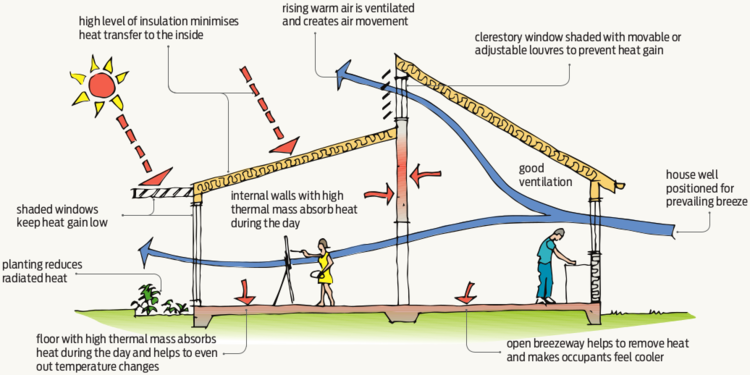Beat the Humidity Blues in Your Basement with Expert Air Circulation Techniques.
Our homes’ basements, which we all use as storage areas, laundry rooms, or even home theaters, are frequently overlooked. High humidity is a common issue that affects many basements, though. Over time, excessive moisture in the basement can result in the growth of mold, musty odors, and even structural damage. It’s critical to master air circulation strategies made just for basements if you want to solve these problems and create a cozy, healthy living space. We’ll look at a variety of professional techniques in this blog post to help you get rid of the basement moisture problem.

Understanding the Basement Humidity Issue
Due to their underground location and frequent use as storage areas, basements are particularly prone to high humidity levels. Lack of natural light and inadequate ventilation can make the situation worse by resulting in a stuffy environment. Numerous problems, such as the following, can result from excessive humidity
The Root of the Problem
Because of their particular location inside a house, basements are frequently vulnerable to humidity. Since they are frequently below ground level, they are close to the soil. Moisture is present in soil by nature, and this moisture can seep into your basement through cracks in the foundation, floors, and walls. Additionally, because basements typically have poor ventilation and little natural light, moisture can accumulate there easily.
A High Basement Humidity’s Effects
Your basement’s high humidity levels can cause several issues, such as:
Mold and Mildew Growth
Humidity is the perfect environment for the growth of mold and mildew. These unsightly, potentially dangerous organisms can harm your property and impair the air quality inside your home
Damage to Structure
Excessive humidity can cause the wooden beams and joists that make up your basement’s structure to deteriorate. It may weaken your home’s structural integrity over time.
Musty odors
Mold growth and trapped moisture are to blame for the musty, foul smell that is frequently connected to basements. Your basement may become cold and uncomfortable as a result.
Reduced Comfort
Whether you’re using your basement for storage, recreation, or as a living space, it’s less comfortable to be there when it’s humid. A room with a high humidity level may feel clammy and unappealing.
Experts Air Circulation Techniques
Use ceiling fans
Improved air circulation in your home can be accomplished at a reasonable cost by installing ceiling fans. Set your ceiling fans to turn counterclockwise in the summer to generate a refreshing breeze. In the winter, rotating the fan in a clockwise direction will help warm air fill the space more evenly.
Open Windows and Doors
Natural ventilation is the best basement humidity solution and it removes indoor pollutants and brings in clean outdoor air. Cross-ventilation, which facilitates the exchange of indoor and outdoor air, can be created on cooler days by strategically opening windows and doors.
Make Use of Exhaust Fans
Exhaust fans are necessary in rooms like kitchens and bathrooms where moisture and odors are common. These fans remove humidity, odors from cooking, and other noxious odors to create a healthier indoor environment.
Invest in Whole-House Ventilation Systems
Whole-house ventilation systems like energy recovery ventilators (ERVs) or heat recovery ventilators (HRVs), for instance, continuously supply fresh air while minimizing energy loss.
These devices replace stale indoor air with clean outdoor air while recovering some of the energy from the air that is being expelled, making them energy-efficient solutions.
Expert Roofing and Basement Waterproofing provides whole-house ventilation installation at an affordable price.
Improve HVAC systems
Your heating, ventilation, and air conditioning (HVAC) system needs routine maintenance to circulate air effectively. Make sure filters are cleaned or replaced regularly to keep the airflow and temperature in your home consistent. Additionally, you might want to think about getting a programmable thermostat.
Fans Should Be Placed Wisely
In addition to using ceiling fans, you can strategically place portable fans throughout your home to enhance air circulation. Oscillating fans, box fans, and pedestal fans can all be placed near windows or vents to promote airflow.
Keep Clutter to a Minimum
It’s crucial to keep your living spaces organized and clutter-free because clutter reduces air circulation. Vents and air returns shouldn’t be blocked by furniture or drapes.
Fill in Cracks and Gaps
Your home’s exterior and interior walls should be properly sealed to prevent drafts and ensure that air flows where it is most needed. This procedure increases air circulation and aids in energy efficiency.
Controlled Airflow
By ensuring that each room has adequate ventilation, you can maintain a balanced airflow throughout your house. You can adjust the dampers or vents in your HVAC system to reroute airflow as needed.
Utilize Houseplants
By absorbing carbon dioxide and releasing oxygen, indoor plants can help your home’s air quality in addition to adding a touch of nature. Some plants, like spider and snake plants, are especially good at this.
Install a Dehumidifier
Installing a high-quality dehumidifier is one of the best ways to combat basement humidity. These devices continuously work to remove excess moisture from the air to maintain an ideal humidity level of between 30 and 50%. Make sure the dehumidifier you select has a capacity that matches the size of your basement.
Regular Maintenance
Check and maintain your basement’s dehumidifier, HVAC system, and other appliances regularly. To ensure that filters work effectively, clean them or swap them out as needed.
Monitor Humidity Levels
Invest in a hygrometer to regularly check the humidity in your basement. You can then modify your humidity control procedures accordingly.
Conclusion
Don’t let basement humidity compromise the comfort and structural soundness of your house. You can turn your basement into a dry, comfortable, and usable space by using professional air circulation techniques, such as setting up a dehumidifier, improving ventilation, sealing and insulating, and proper storage. Regular maintenance and monitoring are essential to keeping your basement dry and safe because humidity control is a never-ending process. By using these techniques, you can beat the humidity blues and utilize your basement space to the fullest.
Expert Roofing and Basement Waterproofing offers the best air circulation techniques by providing exceptional ventilation solutions to get rid of basement moisture problems.
What is the main issue with humidity in basements?
What signs would indicate a humidity issue in my basement?
How can I lower the humidity in my basement using some simple air circulation techniques?

Lifetime Warranties
You can’t go wrong with a lifetime warranty on all services
FREE Inspections
FREE Estimates
Financing Available
Check out our competitive rates
Check out our competitive rates
Providing services throughout Northern Indiana and Southern Michigan
